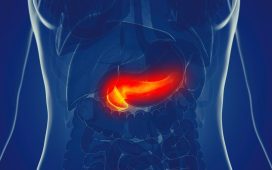Increase seen in receipt of guideline-concordant treatment for women newly diagnosed with HR-negative, HER2-positive breast cancer
By Elana Gotkine HealthDay Reporter
FRIDAY, Oct. 25, 2024 (HealthDay News) — Expanding Medicaid is associated with an increase in receipt of guideline-concordant treatment among nonelderly women newly diagnosed with hormone receptor (HR)-negative, human epidermal growth factor receptor 2 (HER2)-positive breast cancer, according to a study published online Oct. 23 in the Journal of the National Comprehensive Cancer Network.
Kewei Sylvia Shi, M.P.H., from the American Cancer Society in Atlanta, and colleagues examined the association between Medicaid expansion and receipt of guideline-concordant treatment, time to treatment initiation, and survival among 31,401 women aged 18 to 62 years newly diagnosed with HR-negative, HER2-positive breast cancer. Outcome changes following Medicaid expansion were compared in expansion versus nonexpansion states in a difference-in-differences analytic approach.
The researchers observed an increase of 0.58 percentage points in receipt of guideline-concordant treatment overall in association with Medicaid expansion, as well as a 2.43-percentage point increase in initiating guideline-concordant treatment <60 days after diagnosis and a 1.17 percentage point increase in the two-year survival rate. Patients with stage III disease had the most prominent increase in two-year survival associated with Medicaid expansion (difference-in-differences, 3.81).
“Expanding insurance coverage to individuals with cancer can allow them to benefit from access to life-saving treatments,” the authors write.
Several authors disclosed ties to the biopharmaceutical industry.
Copyright © 2024 HealthDay. All rights reserved.








